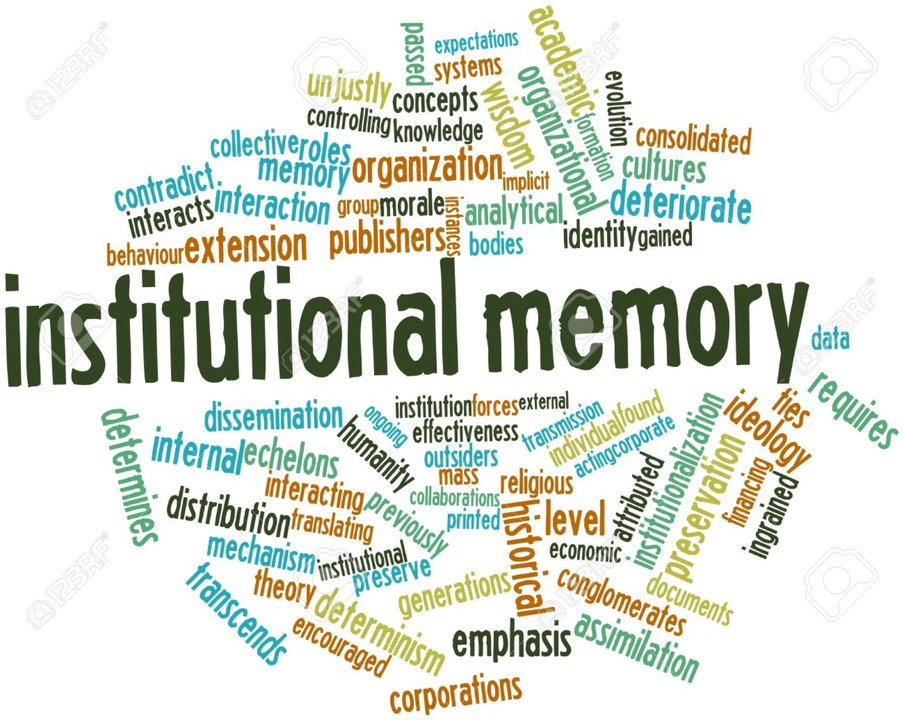
Capturing institutional knowledge
Institutional knowledge or memory is defined by wikipedia as a collective set of facts, concepts, experiences and know-how held by a group of people. As it transcends the individual, it requires the ongoing transmission of these memories between members of this group. Elements of institutional memory may be found in corporations, professional groups, government bodies, religious groups, academic collaborations, and by extension in entire cultures.
Institutional memory may be encouraged to preserve an ideology or way of work in such a group. Conversely, institutional memory may be ingrained to the point that it becomes hard to challenge if something is found to contradict that which was previously thought to have been correct. Institutional memory may have influence on organizational identity, choice of individuals, and actions of the individuals interacting with the institution.
It’s the informal but vitally important information about how things work in an organization; this can range from a process to knowing who to call in another organization to why everyone hits the copier in just the right spot. Every organization has institutional knowledge though very few organizations capture it effectively. What happens when senior staff leave? What about the person who has a solid relationship with a rival organization? What about the janitor who can fix the copier, saving you the cost of the call? How do you effectively take on their duties? What knowledge do they take away with them? This is especially relevant now in these rapidly changing times. Your organization may be effected.
Institutional knowledge is something everyone has a little bit of. A lot of it is passed on rapidly to newer staff, usually through conversation, but the newer staff may never think to ask why something is done that way. The staff who have been there longer know more, though they may not know they have a gold mine of information. When those who have the most institutional knowledge leave, it can create a gaping hole in an organization and in the understanding of how it can function most efficiently and effectively. The remaining staff may understand how to do something but not why and this can lead to problems if they think they can simply stop doing things the old way.
So how do you capture institutional knowledge? By recognizing the value, asking and recording. By building a strategy that includes defining what matters and developing a process for collection, dissemination, and maintenance.
As a start, ask longer-term staff to tell you why something is done the way it is or how a process, relationship or product started. Collect the oral history, the stories, of the organization before those more knowledgeable staff leave whether through attrition, retirement or death. I’d recommend making story collection a regular part of your culture, something you do several times a year. There may be reluctant to share those stories with their colleagues, either embarrassment or knowledge hoarding, so don’t be shy about making this an explicit part of how things work, or about asking for help.
Thinkstory can help, either by training you to capture institutional knowledge or by conducting the study then setting up the process for you. We understand the importance of institutional knowledge, know how to formulate and ask the right questions, how to listen to the answers, and how to capture then present the information in the ways that will be both meaningful and useful. We’re always happy to have a quick conversation at no charge to help you develop a plan.
Regardless of whether or not you want our help, please consider setting up listening sessions to capture institutional knowledge. It’s useful, helps build better culture and is a great way to remind everyone that their story matters.
(c) 2017 Laura Packer